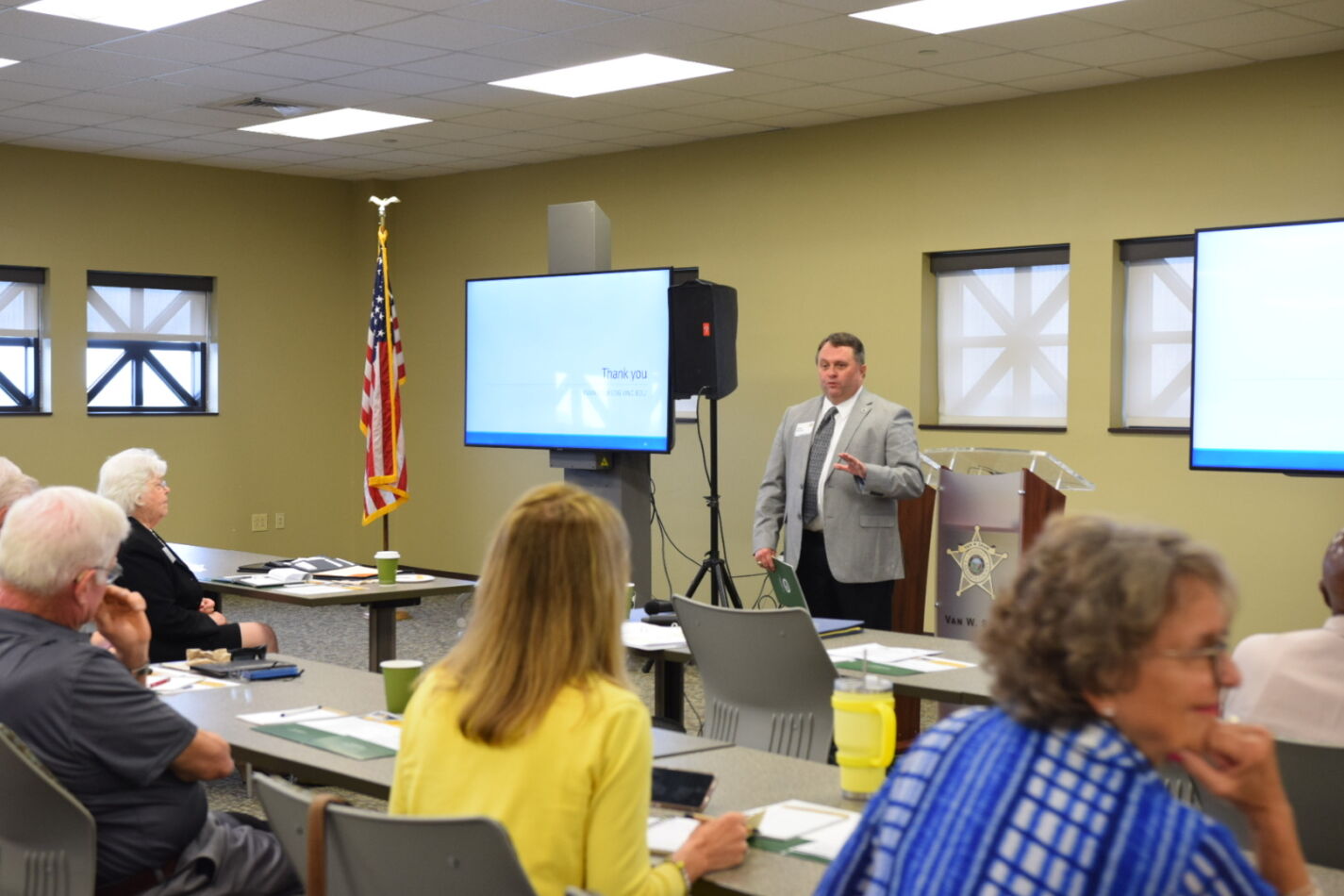- The 100 Counties Prepared Initiative was created to train elected officials on how to handle natural disasters.
- Sixty-one county officials from across N.C. recently completed training by the task force.
During Hurricanes Dorian, Florence, and Isaias, Brunswick County Commissioner Frank Williams, the outgoing president of the N.C. Association of County Commissioners, saw first hand the challenges that elected officials faced with emergency preparedness and decided to do something about it.
“I observed that our staff was well trained, but there was little to no emergency-preparedness training suitable for elected officials,” Williams said. “A county commissioner’s role in an emergency situation is far different than that of our professional staff, and it is important for elected officials to have a clear understanding of what their role is and is not. We created the 100 Counties Prepared initiative to fill that training void.”
He created the initiative after being sworn in as president of the NCACC at their annual conference in 2021. Williams appointed a statewide task force co-chaired by current Brunswick County Board of Commissioners Chairman Randy Thompson and Guilford County Commissioner Kay Cashion.
The task force worked with NCACC staff to develop a full day of emergency-preparedness training for elected officials that would help them deal effectively with emergencies such as natural disasters, public health crises, and other critical-incident situations.
The inaugural training was held in conjunction with the 115th Annual NCACC Conference in Cabarrus County on Aug. 11. Sixty-one county officials from across the state completed the training.

“County governments perform a number of important functions, but the stakes are higher during an emergency,” said Williams. “I commend every county commissioner and county official who completed this class for their willingness to strengthen their knowledge and skills of how to lead more effectively when it matters the most.”
Will Ray, emergency management director for North Carolina, presented Williams, Cashion, Thompson, and NCACC director of policy planning Laurel Edwards — who served as the staff point person for the initiative — with N.C. Emergency Management Director’s Award Challenge Coins. Ray and Williams also signed certificates of completion for all attendees.
“This training course is a vital piece to continuing the sustainment and improvement of emergency preparedness across our state,” said Ray in the keynote address. “We know that we will continue to have events and incidents that impact North Carolina that will be across all hazards, and we will need counties’ continued partnership, standing shoulder-to-shoulder together as we continue to serve our communities.”
Training included an explanation of legal terminology, roles, and responsibilities related to emergency preparedness and management by Kate Van Tol, N.C. emergency management legal fellow; a discussion about the proper role of commissioners in the emergency management process led by Thompson and Washington County Commissioner Ann Keyes, both retired county-level emergency managers; a crisis communication session led by Julie Parker of Julie Parker Communications and Meagan Kascsak, Brunswick County’s director of communications; and a panel discussion featuring former N.C. Emergency Management Director Mike Sprayberry and former FEMA Director Brock Long.
Tracey Johnson of Washington County was also sworn in as the president of the NCACC at the conference.